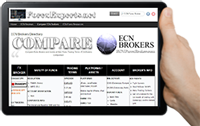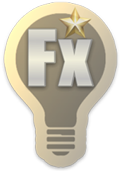 Alternative Trading System (ATS)
Alternative Trading System (ATS)
An alternative trading system (ATS) is a trading venue that operates outside of an organized exchange and is approved by a regulatory authority such as the SEC or FSA. An ATS is a common example of a dark pool.
⚙️ What is an Alternative Trading System?
An ATS, or alternative trading system, is a platform designed for trading a variety of financial instruments and is not regulated as an organized exchange. An ATS functions as a matching engine for buy and sell orders submitted by its subscribers. These subscribers may include brokers, institutional traders, investment banks, or even large retail traders.
Regulated by the SEC in the US
The U.S. Securities and Exchange Commission (SEC) began regulating alternative trading systems in 1998. The purpose of SEC regulation is to address potential issues in ATS operations and to ensure investor protection. Under the SEC framework, if an ATS accounts for more than 5% of the total trading volume in any given security, it becomes subject to enhanced reporting requirements and greater operational transparency.
The Advantage of Anonymity in an Alternative Trading System
Institutional traders use ATSs to find counterparties for large transactions. Using an ATS is often preferable to executing large trades on public exchanges due to the anonymity it provides. When a major market participant buys or sells large blocks of a particular security on a public exchange, it can move the market in an undesirable direction. This can create challenges for the institutional trader, making the anonymous nature of an ATS a more strategic choice. Many ATSs are specifically designed to match large buyers and sellers exclusively.
💼 The Customers of an ATS
These are the common customers of an ATS:
(1) Asset Managers: This group includes mutual funds and pension funds.
(2) Professional Traders: This category includes hedge funds, proprietary trading desks, high-frequency traders, and others.
(3) Financial Brokers: These are firms that buy and sell securities on behalf of their clients.
(4) Brokers/Dealers: These entities not only execute trades for clients but also trade for their own accounts. They are often divisions of large commercial banks such as Citigroup, Goldman Sachs, and Morgan Stanley.
(5) Market Makers: Market makers facilitate trading by providing liquidity and often use ATSs to enhance that liquidity. Examples include UBS, Citi, Knight Capital, and Citadel.
(6) Retail Traders: Retail traders typically access ATSs through their online brokerage platforms.
🛠 Types of Alternative Trading Systems (ATSs)
An ATS typically refers to an electronic platform where investors can buy or sell existing financial instruments. These instruments include Forex derivatives, shares, bonds, and other types of derivatives. There are two main types of ATS:
(a) Matching systems
(b) Crossing networks
Different Venues of an ATS
These are the main venues for trading securities outside of traditional exchanges:
(1) ECNs (Electronic Communication Networks)
ECNs function similarly to exchanges but are not permitted to list stocks.
(2) Dark Pools or Crossing Networks
Dark pools offer anonymity in trading. Some of the largest dark pools include:
- Credit Suisse (Crossfinder): https://www.credit-suisse.com/sites/aes/en/asia/crossfinder.html
- Goldman Sachs (Sigma X MTF): http://gset.gs.com/sigmaxmtf/
(3) Matching Networks
These platforms allow a company to fulfill trade orders using its own internal inventory of stock.
(4) Voice-Brokered Third-Party Matching
This refers to traditional brokers who manually match buy and sell orders directly.
Examples of Equity ATSs in the US and Canada:
ATS List by FINRA: http://www.finra.org/sites/default/files/equity-ats-firms-list.pdf
🏛️ What is an ECN (Electronic Communication Network)?
An ECN network is an automated alternative trading system designed to match buyers and sellers. It operates as a bridge connecting brokerages and individual traders, eliminating the need for a middleman. An ECN enables investors in different geographic locations to trade with each other easily and instantly.
The Forex ECN Network
Foreign Exchange (Forex) trading relies on the technology of Electronic Communication Networks. The first ECN for currency trading was Matchbook FX, established in 1999 in New York. Today, there are several ECN providers for currency trading, including:
-
Fxall (Thomson Reuters)
These networks function as matching engines, offering tight spreads and extremely fast execution speeds—typically under 100 milliseconds per trade. The matching process is quote-driven, meaning each order is executed at the best available price.
■ Alternative Trading System (ATS)
ForexExperts.net (c)









